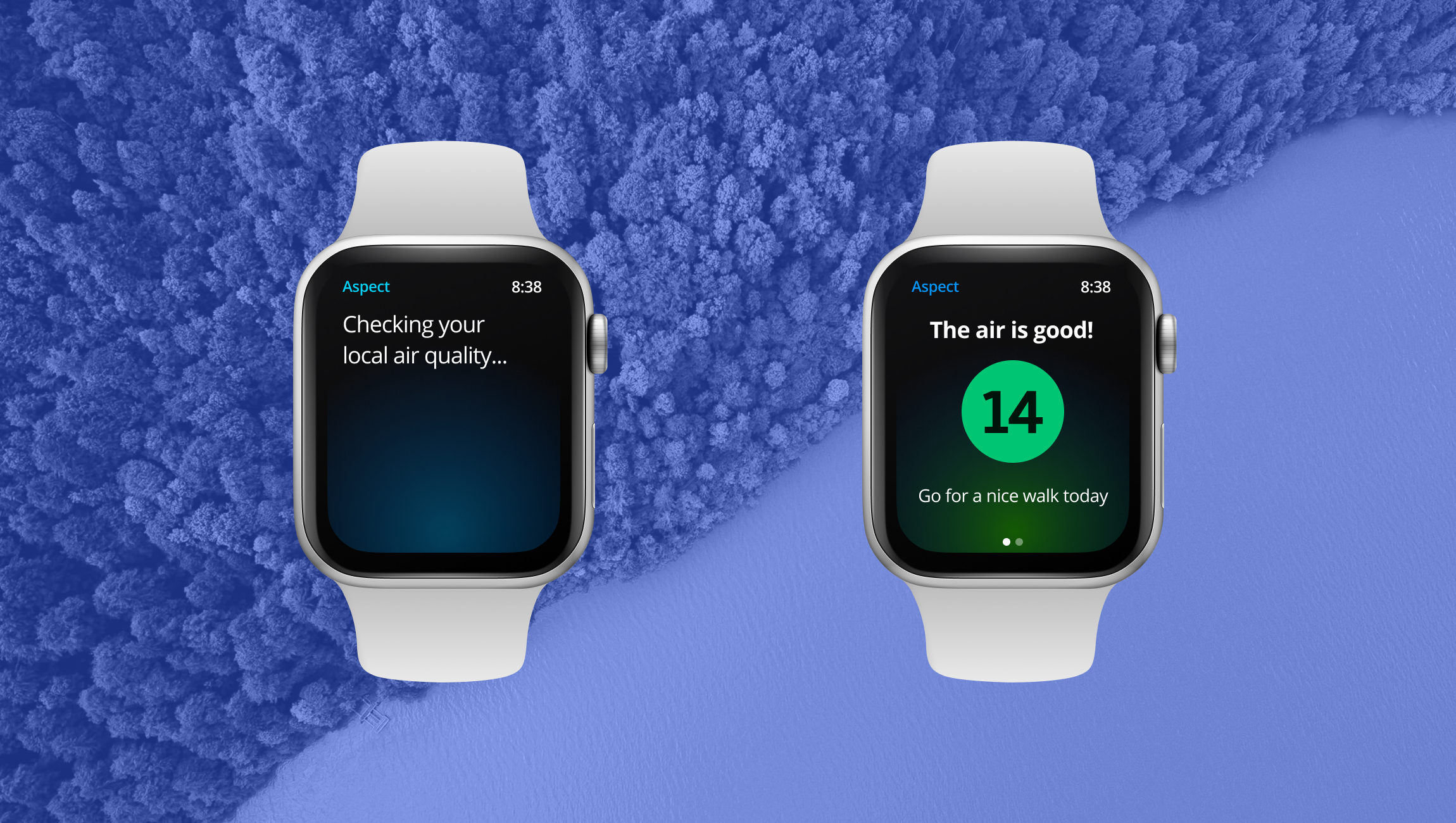
/ 3 min read
AirAlert WatchOS
Project Overview
In an era where approximately 21% of Americans (68.8 million people) use smartwatches (Vogels, Pew Research), and air pollution affects 90% of urban populations (National Institute of Environmental Health Sciences), there’s a critical need for accessible air quality monitoring. This WatchOS concept application bridges this gap by providing real-time air pollution alerts and safety guidance directly on users’ wrists.
Background
Air quality monitoring has evolved significantly with companies like PurpleAir and AirNow deploying sophisticated sensor networks and modeling systems. While this data is more accessible than ever, there’s a notable gap in how it’s delivered to end-users, particularly through wearable devices. This project addresses this opportunity by creating a minimal, user-friendly WatchOS application focused on real-time air quality monitoring and alerts.
Problem Statement
Current solutions, including Apple’s native Weather application, fall short in providing continuous air quality awareness and customizable notifications. While government emergency alert systems exist, they typically only activate during severe events and offer limited user control. This project enhances the air quality monitoring experience by:
- Delivering customizable, real-time notifications
- Creating a WatchOS-specific interface optimized for glanceable information
- Integrating seamlessly with existing air quality data services
Design Process
User Research and Journey Mapping
The design process began with identifying two primary user entry points:
- Direct app access from the wearable device
- Response to push notifications
Key considerations in the user experience design included:
- Context awareness for notification timing and frequency
- Information hierarchy for immediate comprehension
- Post-notification user flow optimization
- Critical data presentation in the constrained watch interface
UX Flow Development
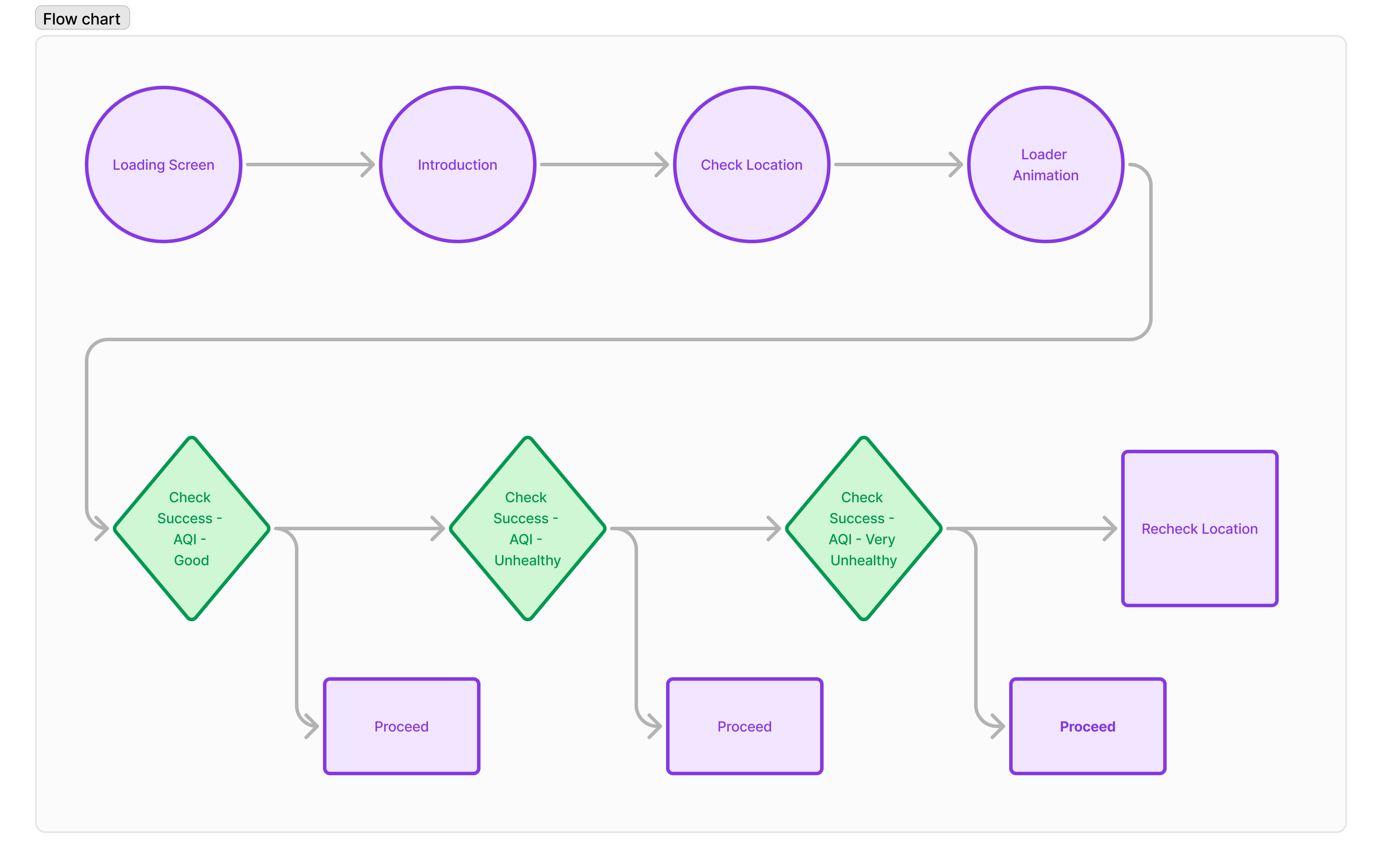
The user experience flow was mapped to ensure intuitive navigation and immediate value delivery. The system architecture accounts for:
- Multiple data source integration (NOAA, PurpleAir, AirNow)
- Real-time location services
- Push notification management
- Dynamic map rendering
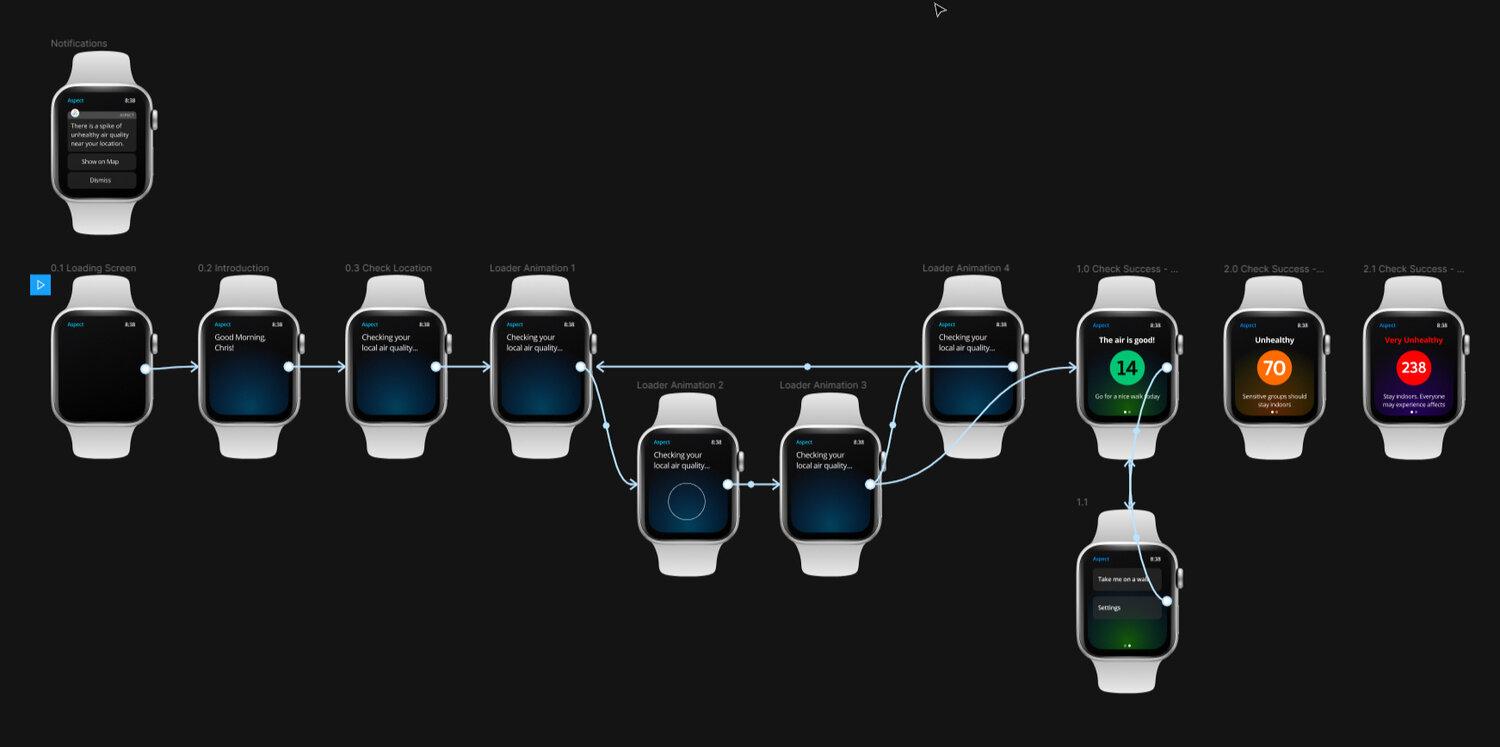
User Journeys
Journey A: Notification-Driven Interaction
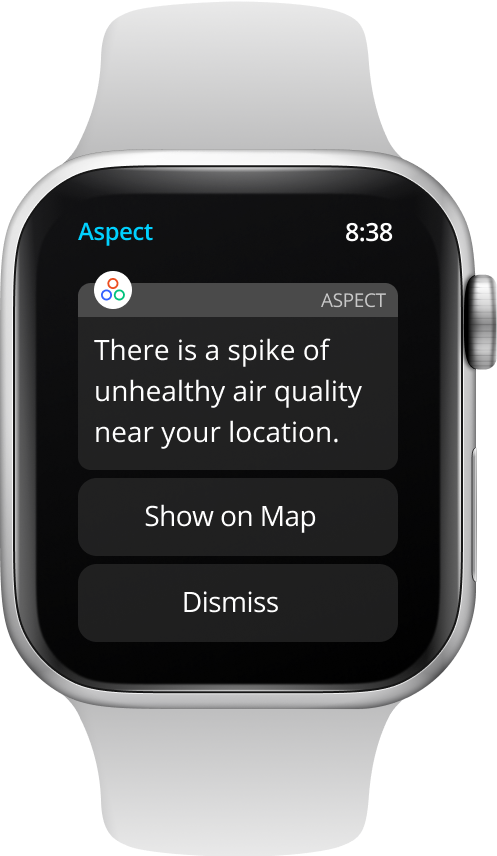
- Contextual alerts based on user location
- One-tap access to detailed air quality maps
- Visual representation of air quality impact zones
- Immediate access to safety recommendations
Journey B: Proactive Monitoring
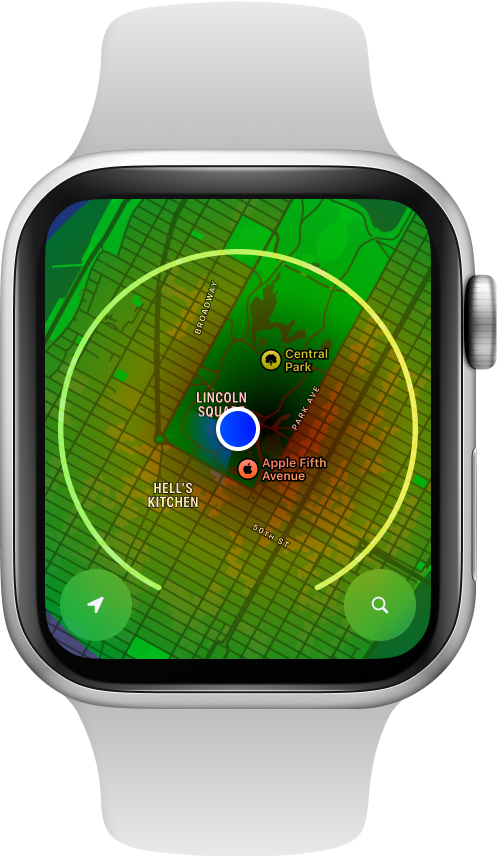
- Elegant loading states with location services integration
- Clear visual communication of AQI levels
- EPA-standard color coding for instant comprehension
- Simplified data visualization optimized for the watch face
If a user wants to view the current air quality conditions from their wearable outside of recieving a notification, a user can simple open the app from their app list.
Visual Design and UI Components
The interface adopts the EPA’s Air Quality Index color coding system while maintaining Apple’s design guidelines:
- Consistent color mapping for AQI categories
- High contrast for outdoor visibility
- Minimal cognitive load through strategic information architecture
- Gesture-optimized interaction patterns
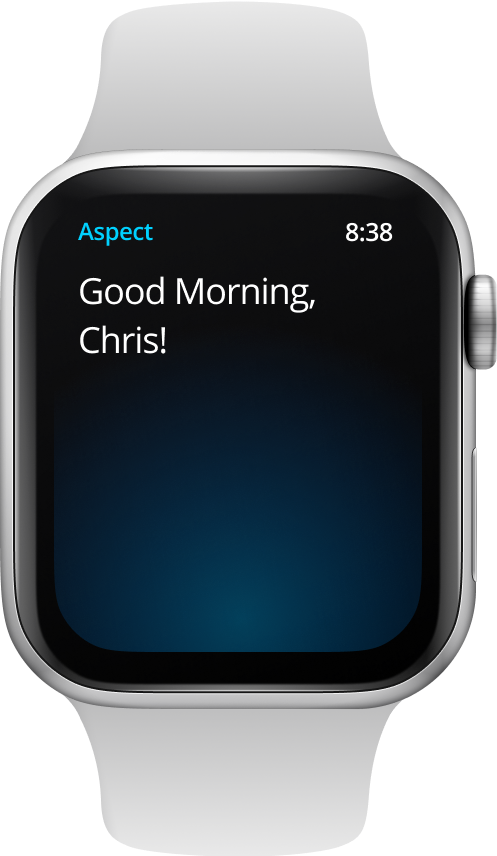
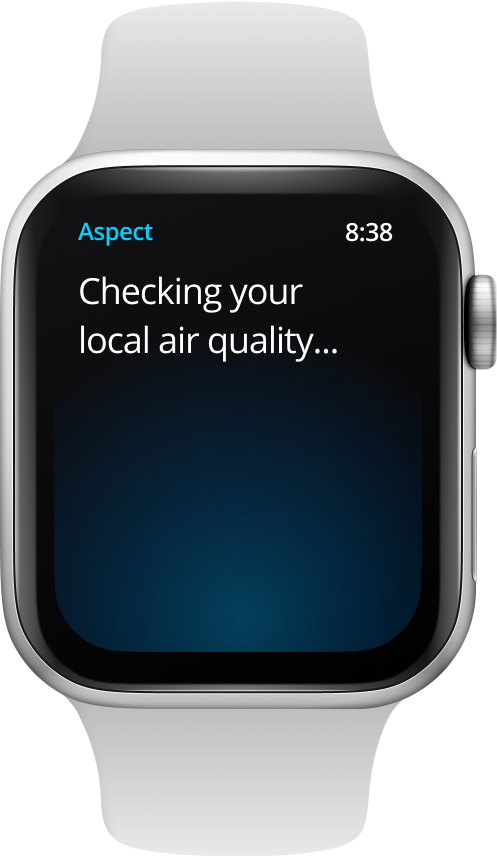
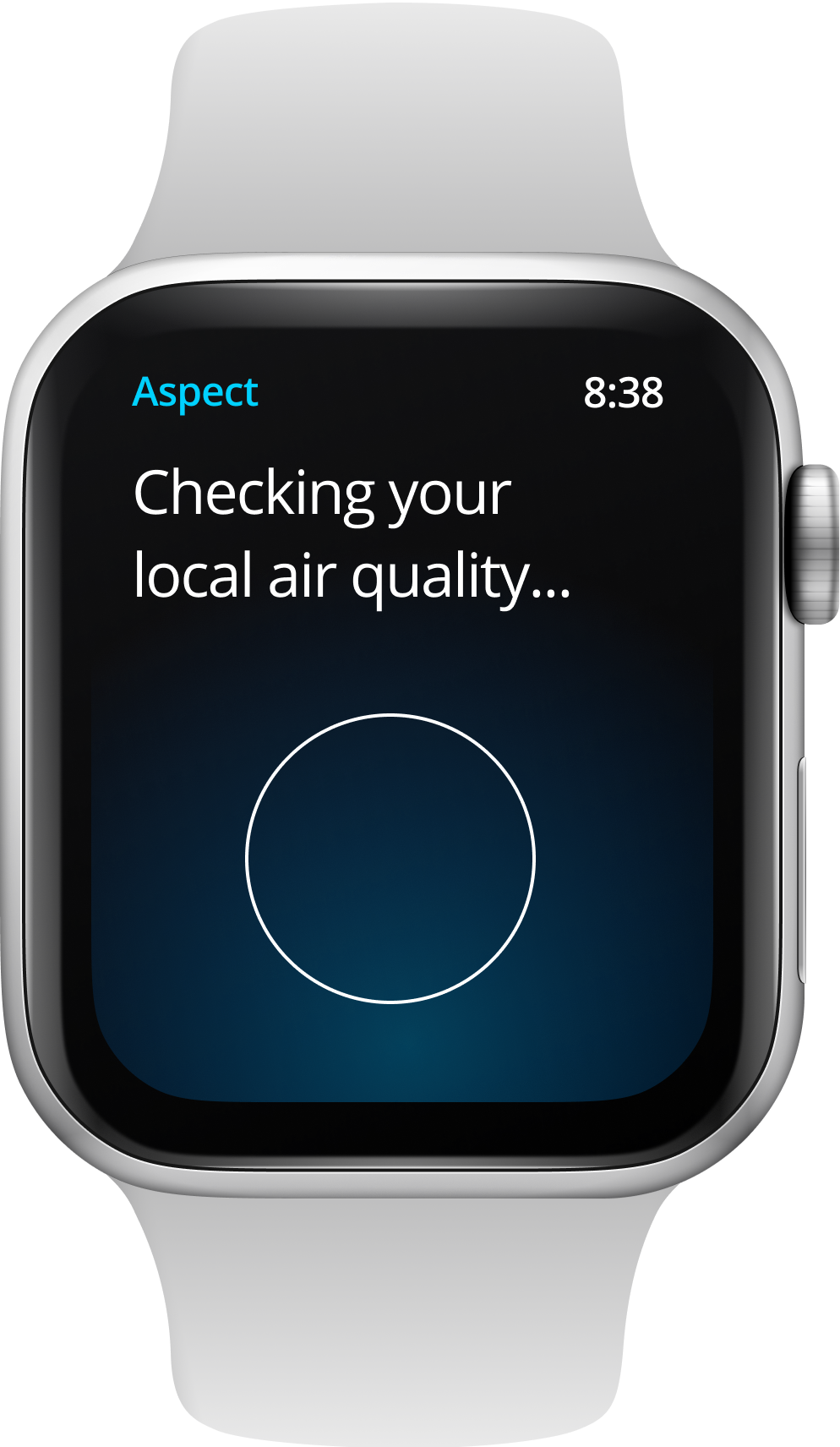
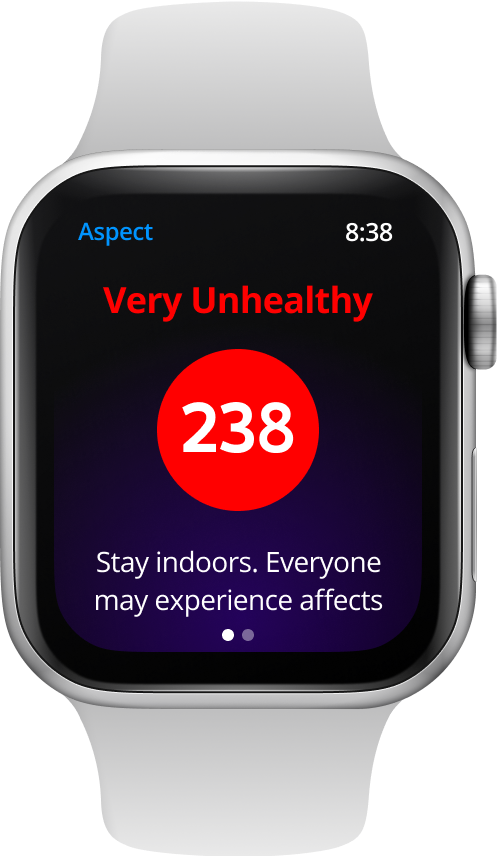
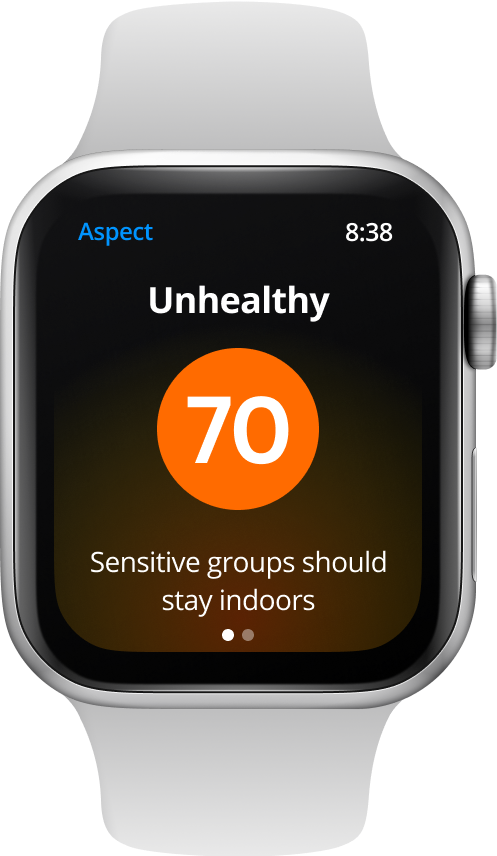
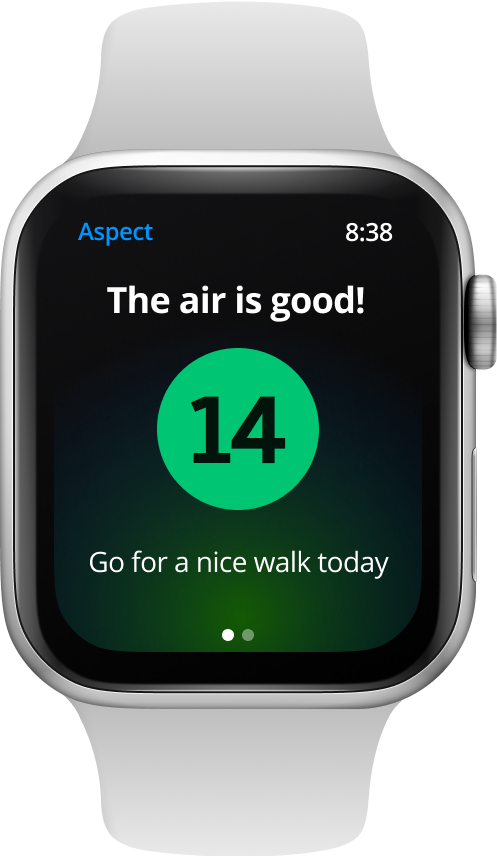
Technical Considerations
The application architecture considers:
- Location services optimization for battery life
- Real-time data synchronization
- Cross-reference capabilities with multiple air quality data sources
- Efficient storage and caching strategies
Future Implementation Path
While conceptual, this application has clear potential for real-world implementation:
- Integration with Apple’s Weather app ecosystem
- Configurable location services (Always-on vs. While Using)
- Opt-in notification system for specific AQI thresholds
- Extended functionality for different watch faces and complications
Impact and Outcomes
This project demonstrates how thoughtful design can transform complex environmental data into actionable insights for users. By leveraging the immediacy of wearable technology, it creates a more informed and proactive approach to air quality awareness in urban environments.
Last Updated: